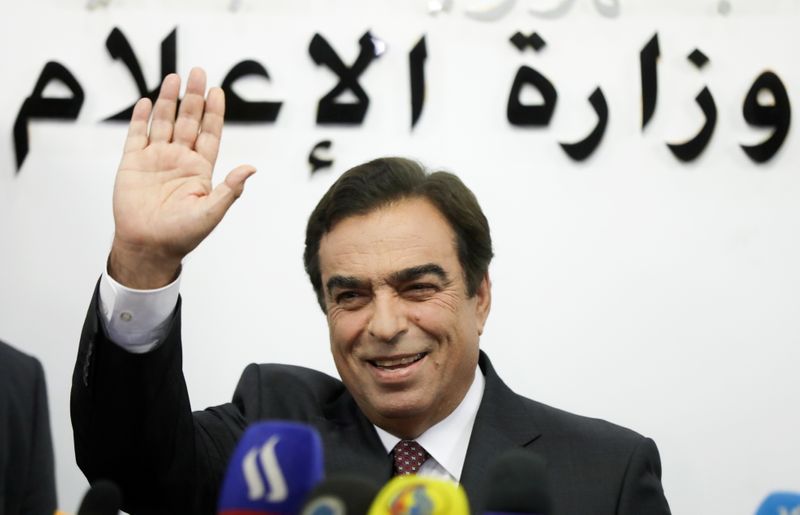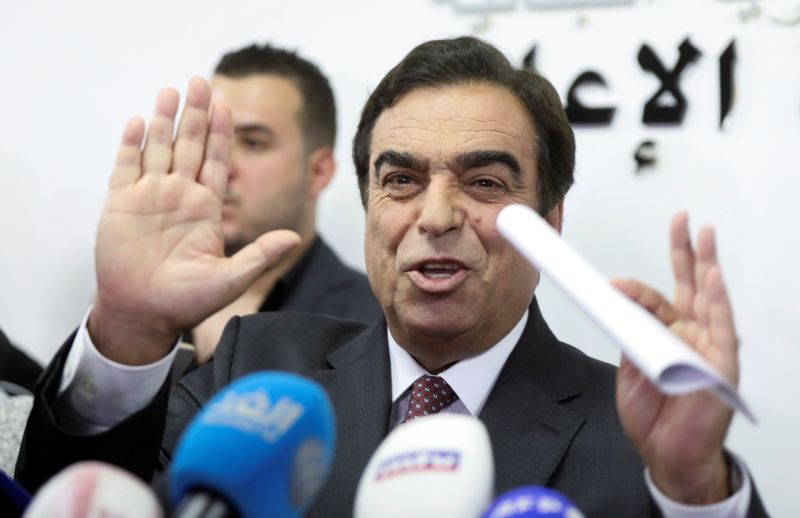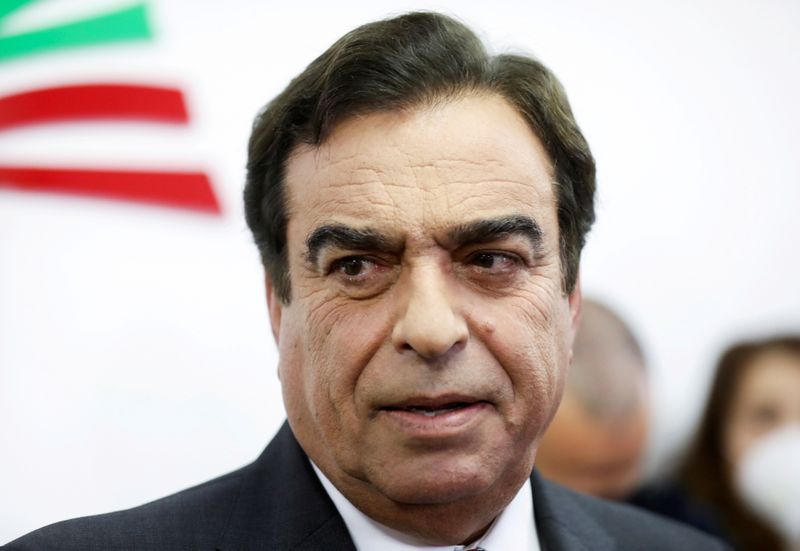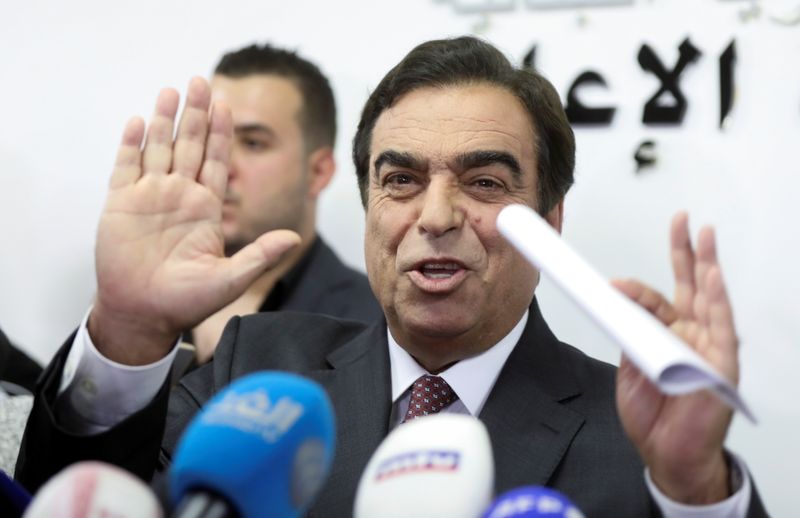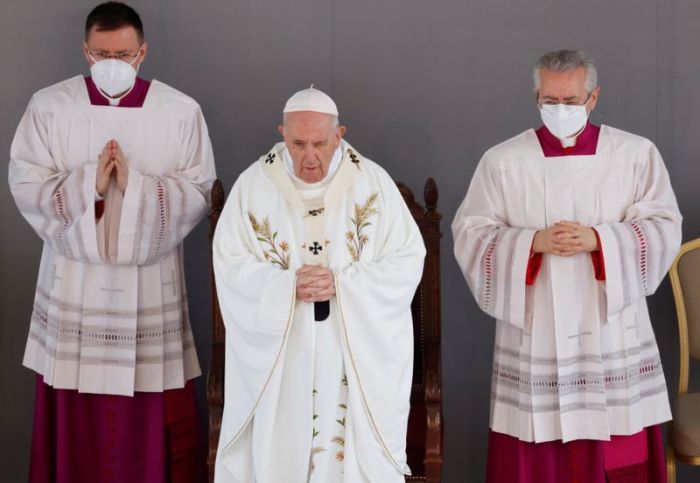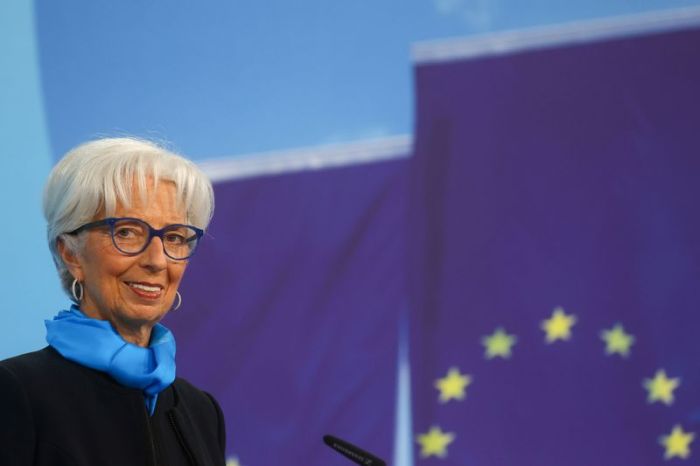BEIRUT (Reuters) – Lebanon’s information minister resigned on Friday, saying he was putting the country before his personal interest to help end a diplomatic dispute with Saudi Arabia brought on by his comments.
George Kordahi, a TV host-turned-politician, said he had quit before Emmanuel Macron’s visit to Saudi Arabia in hopes the French president would help ease the crisis triggered by his critical remarks about Saudi Arabia’s role in the Yemen war.
Saudi Arabia expelled Lebanon’s envoy to the kingdom, recalled its ambassador to Beirut and banned Lebanese imports after Kordahi’s comments, which Riyadh said were a symptom of the wider issue of Iran-backed Hezbollah’s grip on Lebanon.
Sunni Muslim Saudi Arabia and Shi’ite Iran have long battled for influence in the region, including in Lebanon, which is struggling with a deep economic crisis and desperately needs financial support from regional and international donors.
Other Gulf states, including the United Arab Emirates, Bahrain and Kuwait, followed Saudi Arabia’s lead regarding Lebanon.
Beirut is looking forward to restoring normal ties with Saudi Arabia and other Gulf countries, Prime Minister Najib Mikati said after Kordahi’s resignation.
He also said Kordahi’s decision will open a door to dissolving the crisis with Saudi and Gulf states, calling on all Lebanese parties to “put Lebanon’s interest first and refrain from any offence of any kind to brotherly states or any interference in their affairs”.
Kordahi, a Christian whose Marada party is backed by Hezbollah, had refused to resign for weeks, even as Mikati asked him to put “national interest” first.
“I understood from Mikati… that the French want my resignation to take place ahead of his (Macron’s) visit,” Kordahi told a news conference.
Macron said on Friday he hoped there would be “progress” on the Lebanon crisis in the next hours and said France would “do all we can to re-engage the Gulf regions for the benefit of Lebanon,” in comments made during a visit to the United Arab Emirates.
Lebanese President Michel Aoun and Mikati accepted Kordahi’s resignation, the presidency said in a tweet.
Karim Emile Bitar, head of political science at Saint Joseph University of Beirut, said Kordahi’s resignation was more of a catalyst than cause for the Saudi measures, which he said were unlikely to be lifted swiftly as they were driven by the ongoing regional tussle between Tehran and Riyadh.
“Their main objective is to trim the wings of Hezbollah,” he said.
“The whole Kordahi affair was a sideshow that showed once again that Lebanon is not a sovereign country and is paying the price of the Saudi-Iranian proxy war.”
Mikati also said his government is determined to take more strict “measures to control sea and land borders and prevent all kinds of smuggling that damage the security of brotherly Arab states,” especially Saudi.
(Reporting by Timour Azhari, Maha El Dahan and Ahmed Tolba; Writing by Yasmin Hussein and Enas Alashray; Editing by Edmund Blair, Angus MacSwan and Dan Grebler)

